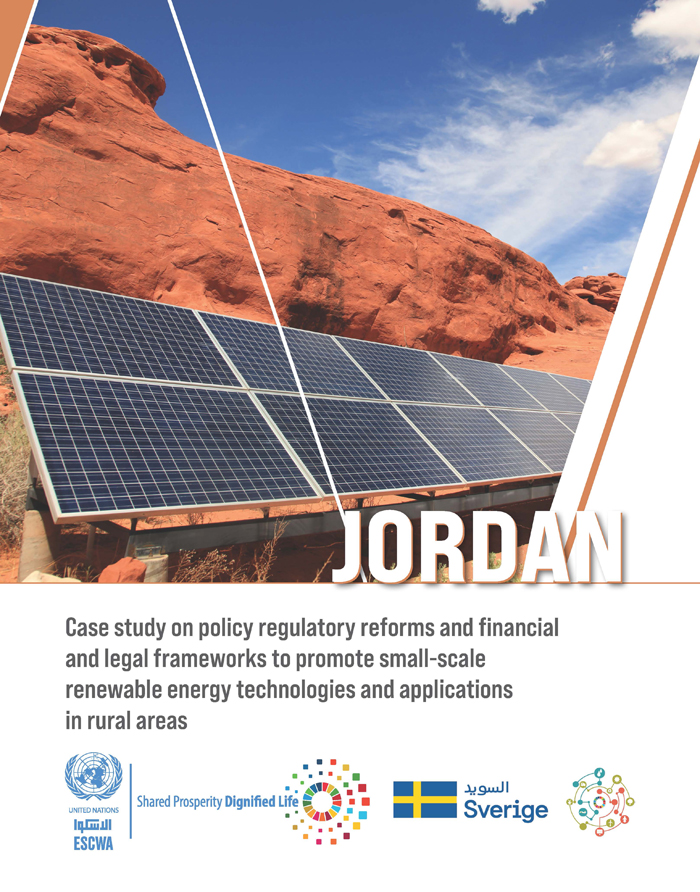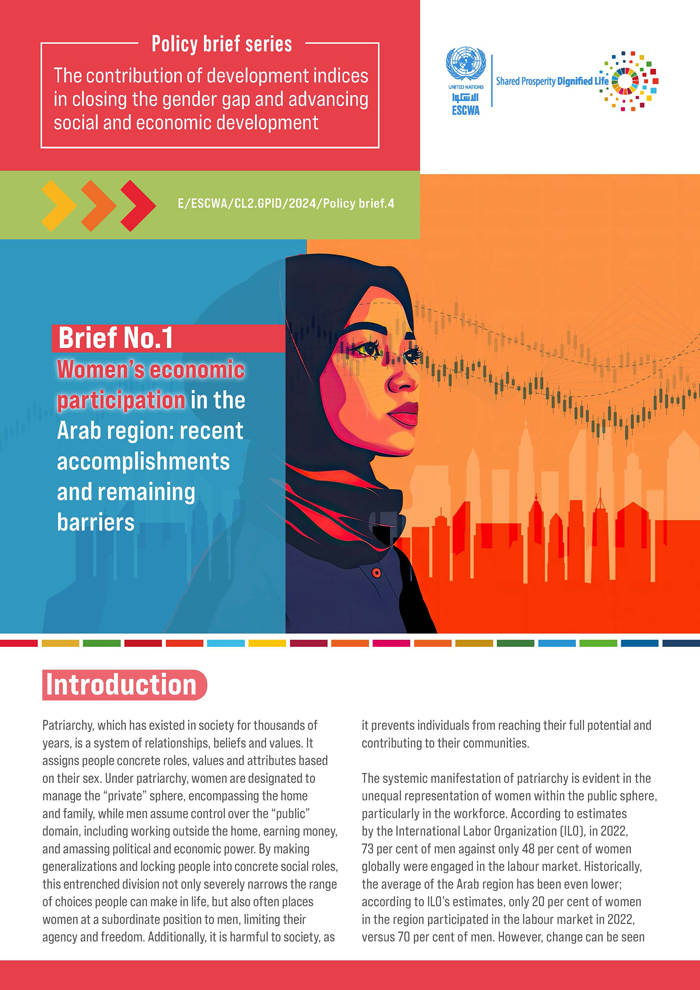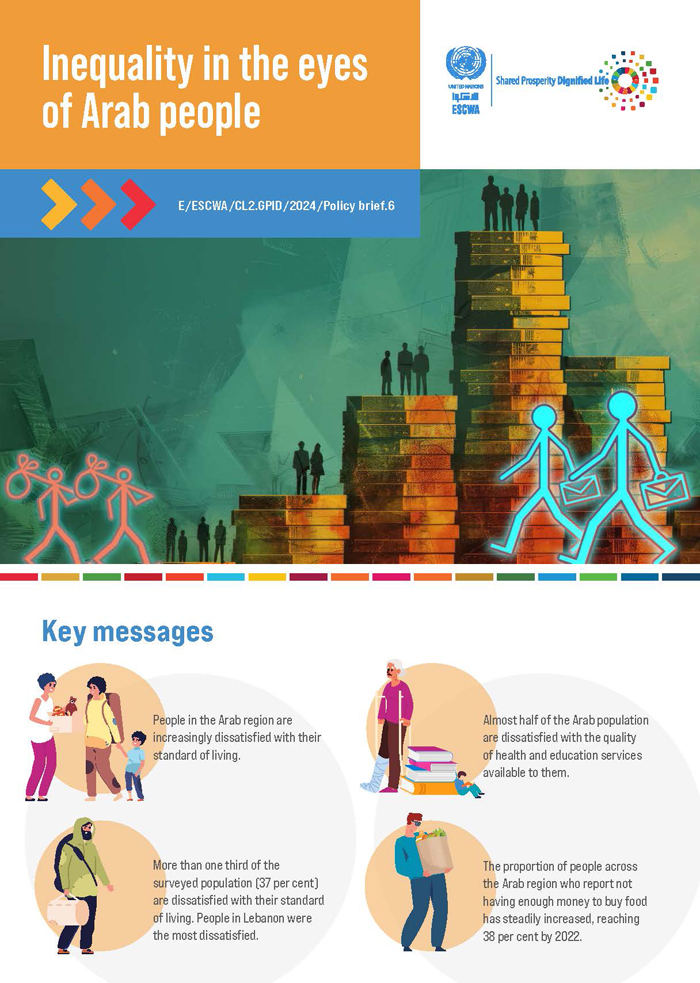
ESCWA Publication: E/ESCWA/CL1.CCS/2021/TP.12
Country: Hashemite Kingdom of Jordan
Publication Type: Information material
Cluster: Climate Change and Natural Resource Sustainability
Focus Area: 2030 Agenda, Climate change, Natural resource sustainability, Gender equality
Initiatives: REGEND
SDGs: Agenda 2030
Keywords: Renewable energy sources, Gender equality, Gender, Rural depopulation, Jordan, Entrepreneurship, Climate change, Natural resources, Technical cooperation
Case study on policy regulatory reforms and financial and legal frameworks to promote small-scale renewable energy technologies and applications in rural areas in Jordan
May 2022
This case study was developed within the framework of the “Regional Initiative for Promoting Small-Scale Renewable Energy Applications in Rural Areas of the Arab Region” (REGEND). It tackles Jordanian policy and regulatory reforms and financial and legal frameworks needed to promote small-scale renewable energy technologies and applications in rural areas through an integrated approach.
The study, therefore, analyzes the national strategies and policies for rural development and assesses the ground-level regulations for rural productive activities that could promote both small-scale renewable energy technologies and entrepreneurial development and attract private investments. It also assesses a gender-specific line to promote women’s economic empowerment to access the market and provides guidelines for the design and implementation of policies and regulatory, financial, and legal frameworks to support rural development programmes that are economically, environmentally, socially, and institutionally sustainable.
Related content
2030 Agenda
, Climate change
, Natural resource sustainability
, Gender equality
,
This case study was developed within the framework of the “Regional Initiative for Promoting Small-Scale Renewable Energy Applications in Rural Areas of the Arab Region” (REGEND). It tackles Jordanian policy and regulatory reforms and financial and legal frameworks needed to promote small-scale renewable energy technologies and applications in rural areas through an integrated approach.
The study, therefore, analyzes the national strategies and policies for rural development and assesses the ground-level regulations for rural productive activities that could promote both small-scale renewable energy technologies and entrepreneurial development and attract private investments. It also assesses a gender-specific line to promote women’s economic empowerment to access the market and provides guidelines for the design and implementation of policies and regulatory, financial, and legal frameworks to support rural development programmes that are economically, environmentally, socially, and institutionally sustainable.



